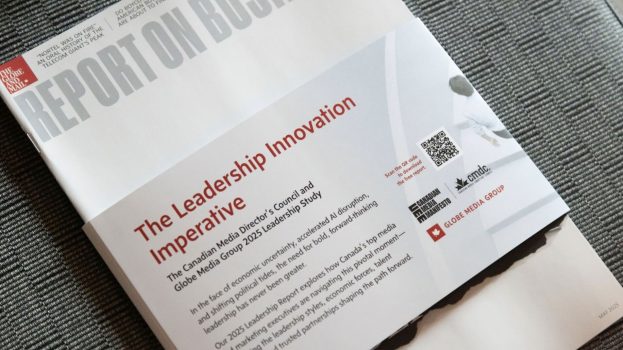A funny thing happened in the summer of 2002. Media buyers and their clients awoke to discover that the generally accepted radio buying practices of the last few decades were just an illusion.
All along we thought we were negotiating with radio stations to purchase their audience and not just spots. We also thought that we were estimating the stations’ future audience based on available BBM surveys. We thought we were evaluating the purchases based on BBM surveys that reflected the period in which our commercials ran and would serve as our posting benchmark. And regardless of the campaign’s length, we thought we would be compensated if the stations did not deliver the agreed-upon campaign audience. We did not care how many spots it took to achieve our station reach and frequency requirements.
This is what we believed to be true, and this is what our clients believed to be true. It is a fundamental media issue that has been taught in the past and continues to be taught today, by all media professionals at the broadcast and the media levels.
Well, apparently we were wrong!
Some of the Vancouver-based radio stations have recently dictated that compensation is only due to advertisers based on the radio stations’ terms and conditions. This is not the standard rule of good media conduct. This is a new rule of media conduct. It is disrespectful of all media professionals and it is disrespectful of our clients. This new rule callously dispenses with historical goodwill practices that are and have been honoured by all media.
After months of haggling over the issue of compensation for underdelivery of radio audiences, the Radio Marketing Bureau issued a letter on Oct. 24, 2002 to the media buying community signed by president John Harding and endorsed by its members including Corus, CHUM, Standard and Rogers.
The letter states that: ‘Radio has and will continue to be bought and sold, where available, on most recent BBM Radio Diary data.’
Wrong – radio may be sold this way but it is certainly not bought this way. Radio buyers attempt to predict a radio station’s audience based on trends as well as knowledge of the current marketplace. A survey conducted in the spring is not an indication of how a radio station will perform in the fall. No radio BBM survey used is ever timely and accurate enough to exactly predict the tuning outcomes of the future. Audience trending and clairvoyance are our tools.
The Radio Marketing Bureau attempts to draw a distinction between estimating radio and television audiences to make the case that radio should not be treated similarly to television. Again, from their letter: ‘Television has been approached with longer buying and selling lead times demanding estimates for specific program performance (not market or overall station delivery) which may air some five to six months later.’
Wrong – Buyers look at not only television program performance but also overall station performance. Anyway, like TV, radio is also purchased several months out, which requires performance estimates.
The document also states: ‘It is important to note that radio buying decisions are made on current BBM audience estimates. Radio formats tend to be constant, so these estimates can be used with confidence to predict, within the standard error for such surveys, what future BBM audience estimates might be.’
Wrong again – While many radio station formats have remained constant, there have been significant changes in the radio landscape. Just look at the recent format changes at Vancouver’s The Beat, as well as the all-sports station The Team; the all-male station MOJO; and the, until recently, all-holiday music station CKKS. Such changes cause market-wide instability.
In addition, with the need for ownership groups to deliver better performance, formats are even more likely to be changed overnight in the future. This trend makes the markets harder to decipher and BBM cannot provide enough timely and accurate data to reflect these changes.
The Radio Marketing Bureau letter goes on to state three rules under which the radio industry will sell:
1) The current system of buying and selling of air time based on the most recent BBM audience data, not predictions of future audience estimates at time of buying and selling, is the appropriate way to continue to conduct business. (Note: This is not the current system and has not been the system of buying radio.)
2) When new BBM data is released, spring and fall only, any remaining schedules will be revised to CPP guarantees so long as these guarantees were in place at the time of the original booking. These guarantees must be plus or minus. For example, if a station loses audience, spots will be added to the remaining schedule in order to bring the remaining portion up to the guaranteed CPP levels. If the station overachieves at that time, spots will be removed from the schedule and a higher spot rate will be applied to bring the guaranteed CPP to the agreed-upon level.
This assumes that the stations are not required to compensate for past poor performance, that they will only adjust going forward, and they will only do that if they agree to ahead of time. It seems that we are being told ‘you pay your money, and you take your chances.’ In a climate where we are expected to be more and more accountable, this hardly seems fair.
3) Retroactive guarantees (for spots that have run before a new BBM is released) will only be honoured if it is agreed upon at the time of booking that if the station overachieves, it will invoice for any GRP over-delivery that has already run. If the station has under-delivered, it will bonus schedule to make up for any under-delivery.
More of the same – Stations have come to these decisions on their own without consultation with their customers about any of this.
The document goes on to state that the purpose of the policies ‘is to maintain consistency and ease of management of the buying and selling processes, insuring a fair ROI for both the clients and stations alike.’
Those of us on the buying side are seeking a simple code of ethics that includes:
1) A fair environment in which to do business.
2) A basic professional level of trust and respect.
3) That sellers show integrity by standing by their products.
4) That, as customers, we be compensated if the product does not perform as promised.
Now, who can argue with that?
Andeen Pitt is media director at Vancouver-based Wasserman & Partners Advertising. The above opinion piece was submitted on behalf of the Vancouver Media Directors’ Council. Pitt can be reached at: APitt@Wasserman-Partners.com.
The Radio Marketing Bureau was invited to publicly respond to the above submission, but declined, saying that it would rekindle discussions with the VMDC in private.























